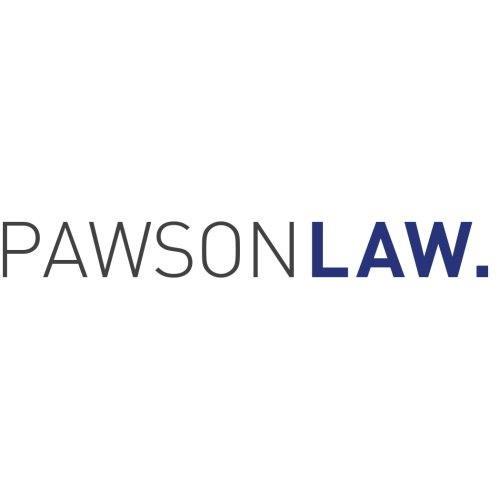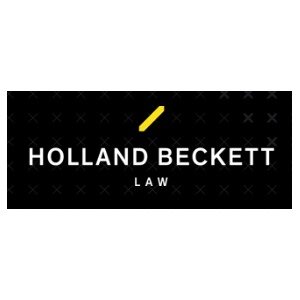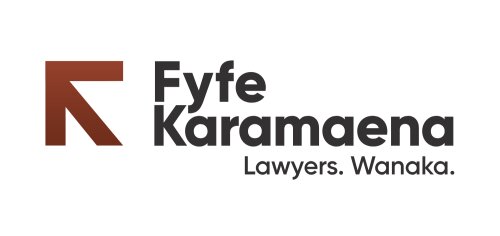Best Wrongful Termination Lawyers in New Zealand
Share your needs with us, get contacted by law firms.
Free. Takes 2 min.
Or refine your search by selecting a city:
List of the best lawyers in New Zealand
About Wrongful Termination Law in New Zealand
Wrongful termination, often referred to as unjustified dismissal in New Zealand, occurs when an employee is terminated without a fair reason or due process. The employment relationship in New Zealand is governed primarily by the Employment Relations Act 2000, which ensures that dismissals are both substantively and procedurally fair. Employees who believe they have been wrongfully terminated can challenge their dismissal through mechanisms such as mediation and the Employment Relations Authority.
Why You May Need a Lawyer
There are various situations in which individuals might require legal assistance concerning wrongful termination. These include instances where an employee is dismissed without proper notice, is terminated for discriminatory reasons, or if the employer has violated terms of the employment agreement. Other situations include redundancy that does not meet fairness criteria or if there is a breach of good faith in the termination process. A lawyer can provide valuable guidance in navigating the complex legal requirements and in seeking a resolution or compensation.
Local Laws Overview
The key aspect of wrongful termination law in New Zealand is the requirement for fair process and just causes as mandated by the Employment Relations Act 2000. Employers must conduct a fair investigation and use a reasonable procedure before dismissing an employee. The employee must receive a clear explanation for the dismissal and a chance to respond to the allegations or concerns. Redundancy must also follow strict procedures, including genuine business reasons and consultation with affected employees.
Frequently Asked Questions
What is wrongful termination?
Wrongful termination refers to the unlawful dismissal of an employee, either without a valid reason or without following the proper procedure.
How is wrongful termination proven in New Zealand?
Proof of wrongful termination involves showing that the dismissal was not substantively justified or that the process was procedurally unfair according to employment law standards in New Zealand.
What should I do if I believe I've been wrongfully terminated?
First, gather any evidence related to your dismissal, such as emails and contracts, and seek advice from a legal professional or an employment service.
Are there time limits to file a wrongful termination claim?
In New Zealand, employees must generally raise a personal grievance with their employer within 90 days of their dismissal.
Can an employer terminate employment without notice?
Generally, no. Unless in cases of serious misconduct where summary dismissal might be justified, adequate notice or pay in lieu is required.
What compensation can I receive for wrongful termination?
Compensation may include lost wages, compensation for distress, and potentially reinstatement to the job, depending on the circumstances.
How does redundancy differ from wrongful termination?
Redundancy is a legitimate reason for termination if it's due to genuine business-related reasons and follows a fair process, unlike wrongful termination.
Can I be dismissed during a probation period without it being wrongful?
Yes, but the dismissal must still be fair and reasonable, even during a probationary period.
What protections exist for whistleblowers facing termination?
The Protected Disclosures Act 2000 offers protections to employees who are terminated or face retaliation after disclosing serious wrongdoing.
Are there exceptions for 'at-will' employment in New Zealand?
New Zealand does not recognize 'at-will' employment, meaning all terminations must adhere to fairness and procedural requirements.
Additional Resources
For more information, consider consulting resources such as the Employment New Zealand website, Citizens Advice Bureau, or the Employment Relations Authority. These organizations offer guidance on employment rights and the procedures for addressing wrongful termination.
Next Steps
If you need legal assistance for a wrongful termination issue, consider consulting with an employment lawyer to explore your options and the viability of your case. Gather all relevant documentation, such as your employment contract, communications regarding the termination, and any evidence that shows the dismissal may have been unjustified. For initial advice, contact employment advocacy services or the Employment Relations Authority to discuss mediation or filing a grievance.
Lawzana helps you find the best lawyers and law firms in New Zealand through a curated and pre-screened list of qualified legal professionals. Our platform offers rankings and detailed profiles of attorneys and law firms, allowing you to compare based on practice areas, including Wrongful Termination, experience, and client feedback.
Each profile includes a description of the firm's areas of practice, client reviews, team members and partners, year of establishment, spoken languages, office locations, contact information, social media presence, and any published articles or resources. Most firms on our platform speak English and are experienced in both local and international legal matters.
Get a quote from top-rated law firms in New Zealand — quickly, securely, and without unnecessary hassle.
Disclaimer:
The information provided on this page is for general informational purposes only and does not constitute legal advice. While we strive to ensure the accuracy and relevance of the content, legal information may change over time, and interpretations of the law can vary. You should always consult with a qualified legal professional for advice specific to your situation.
We disclaim all liability for actions taken or not taken based on the content of this page. If you believe any information is incorrect or outdated, please contact us, and we will review and update it where appropriate.
Browse wrongful termination law firms by city in New Zealand
Refine your search by selecting a city.

















